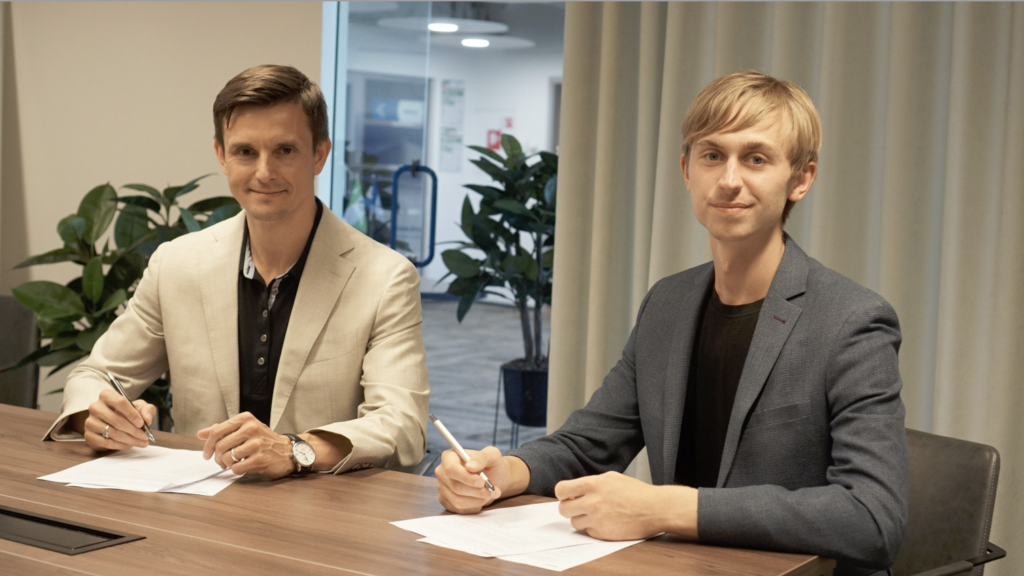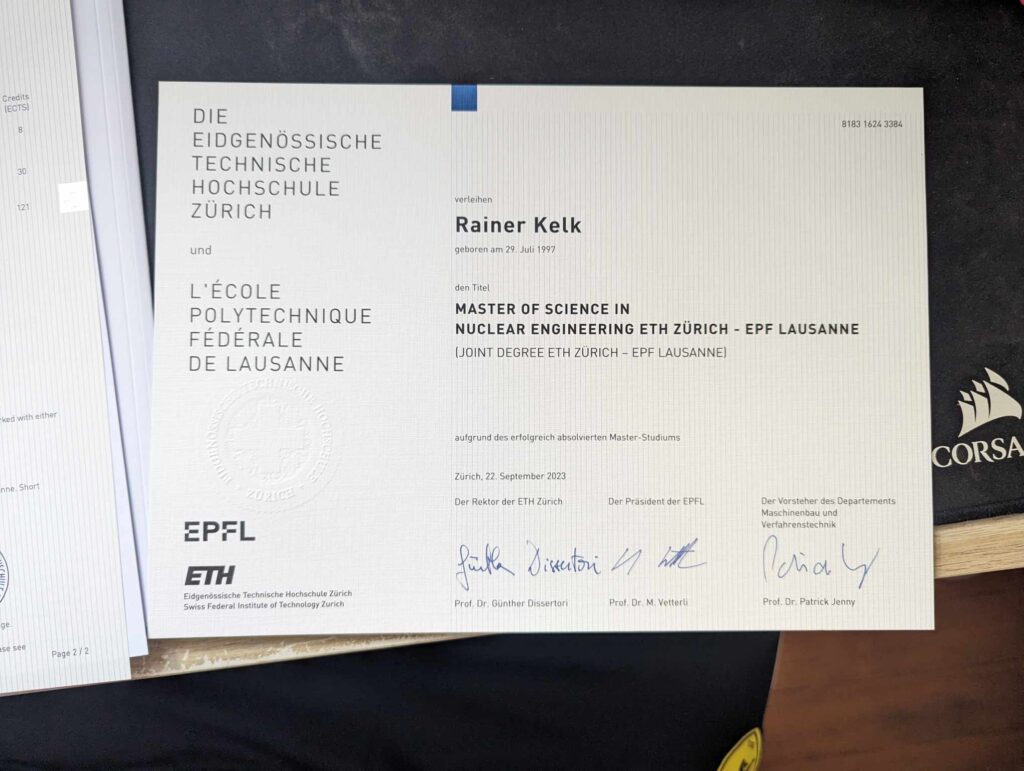For the third year running, Fermi Energia, a company planning to build a small nuclear power plant in Estonia, is sending Estonian students to the world's top universities to study nuclear engineering. The first specialists have already graduated and are starting work. New students are sent to study.

The first two students were awarded the Fermi Energy scholarship in 2021 and have now graduated and received their degrees in nuclear engineering.
Mihkel Aavik graduated from the European Master's Programme in Nuclear Energy (European Master's in Nuclear Energy) and joined Edvance, part of the French nuclear power plant operator EDF. He is responsible for the design of the electrical systems of the EPR1200 reactor.
Rainer Kelk, who received his Master's degree in Nuclear Engineering from the Federal Institute of Technology Lausanne (EPFL) and the Swiss Federal Institute of Technology Zurich (ETHZ), completed an internship at Nagra during the summer. This company is active in the analysis and planning of radioactive waste disposal in Switzerland. After graduation, he plans to return to Estonia and start working on a future nuclear power plant project in Estonia.

"We are working towards creating opportunities for graduating fellows to participate in the BWRX-300 reactor construction project in Canada. Fermi Energia has selected the BWRX-300 reactor technology as the most suitable for the new plant in Estonia. In Canada, our young specialists will gain invaluable experience and know-how that can be applied to the Estonian nuclear power plant project in the future," said Marti Jeltsov, Member of the Board and Chief Technology Officer of Fermi Energia.
Video: second year fellow Elise Poom talks about her studies in Sweden | by Fermi Energy
Ayrton Hüüs and Elise Poom, who are studying at the Faculty of Nuclear Energy at the Royal Swedish Institute of Technology (KTH), will continue their studies. Ayrton Hüüs, who already has experience as an engineer-mechanic, plans to do an apprenticeship as an engineer at WSP in Canada and to study the use of small reactors in ship propulsion systems. Elise Poom completed her traineeship nuclear energy. working group and also looked at nuclear waste. managing theme in Italy.
This autumn, they will be joined by new fellow Hendrik Vija. Hendrik graduated cum laude from the Faculty of Mathematics, University of Tartu.
"The future Estonian nuclear power plant with two small reactors will employ about 200-300 people, most of whom will be technical specialists, such as mechanics, electricians, heat engineers and technology engineers. As the experience of our northern neighbours Finland and Sweden shows, refresher courses are sufficient for most of the technical staff. They need to acquire knowledge of the specifics of working in a nuclear installation, they do not need to have a higher education in nuclear engineering. Of course, the plant also needs people with academic knowledge in nuclear engineering, around 30-40 people. With this in mind, we have been offering scholarships to study nuclear energy at foreign universities for three years in a row and plan to continue doing so," explained Henri Ormus, Member of the Board of Fermi Energia.
Fermi Energy employs two people with PhDs in nuclear engineering, one person with a PhD in reactor nuclear physics, two people with master's degrees in nuclear engineering, and a reactor specialist-operator from the US Navy. The company's staff has experience in both nuclear plant operation and nuclear plant construction projects.
The Fermi Energy grant (€1000 per month) is awarded for two academic years. After graduation, the scholarship holder must work at Fermi Energy for three years. Information about the scholarship: fermi.ee/scholarship/
N.B.: Documents for study in a Masters programme at a foreign university are submitted in winter. Scholarship applicants should therefore start preparing their documents in the autumn.
